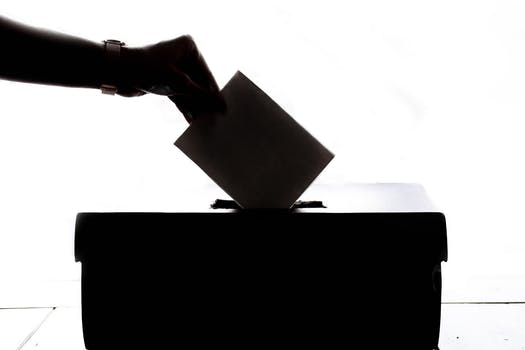
Some of Michigan’s top governmental positions went blue after years of Republican control in a high-stakes midterm election Tuesday.
Gretchen Whitmer will be the first Democrat to take the Michigan Governor’s office in the past eight years after she defeated Republican attorney general Bill Schuette in the race for governor.
“I guess we’re going to have to fix the roads now,” Whitmer said in a victory speech. “Thank you, thank you Michigan. I am incredibly, incredibly humbled that you put your trust in me to be your next governor.”
Democratic Debbie Stabenow beat Republican John James in the U.S. Senate race for Michigan by a 6.03 point margin, according to the AP. This will be her fourth term in the office.
“The coalition for all of us has been about bringing people together,” Stabenow said after her victory. “Working men and women, business people, environmental community, women’s community, religious community, agricultural leaders, that is how you get things done. And that is how I govern, to get things done.”
Jocelyn Benson won the office of Michigan secretary of state. Defeating Republican Mary Treder Lang, Benson will take the seat held by Republicans for 23 years. At a Democratic election night gathering, Benson said that she was ready and would not let people down.
“The people of Michigan deserve a secretary of state who works as hard as you do,” Benson said.
Dana Nessel beat her opponent, Republican Tom Leonard, in the race for Michigan attorney general.
In a news statement released Wednesday morning, Leonard said, “Dana Nessel ran a smart campaign and earned the voters’ trust. I have offered her any help she may need getting acclimated to the department and beginning her term.”
While Republicans kept their majorities in the state House and Senate, several seats did flip parties.
All 38 seats in the Michigan Senate were up for reelection. Prior to the election, 25 Republicans held a majority over 12 Democrats, and there was one vacancy.
Similarly in the Michigan House, 110 seats were open. Republicans maintained the majority, but Democrats gained five seats, for a new total of 58 Republicans and 51 Democrats.
According to the Michigan Secretary of State, more than 3.6 million of the 7.4 million Michigan registered voters cast ballots on Tuesday, with 99 percent of precincts reporting.
In Hillsdale County, nearly 50 percent of registered voters showed up to the polls on election day. Hillsdale County Clerk Marney Kast said in an email that the amount of absent voter ballots issued was extremely higher, according to her local clerks. Hillsdale County results, however, differed significantly from the rest of the state.
Nearly 65 percent of Hillsdale County voters chose Bill Schuette for governor, who ultimately only received about 44 percent of the state’s vote.
Republican Rep. Tim Walberg won the 7th District U.S. congressional seat for the second time against Democrat Gretchen Driskell. This will be Walberg’s sixth congressional term. State Sen. Mike Shirkey and state Rep. Eric Leutheuser were both re-elected as well.
In the city of Hillsdale, Ward 1’s controversial council seat will remain empty until a special election in August 2019. Peter Jennings, Ward 1 resident and associate professor of management at Hillsdale College, received 29 more votes than Dennis Wainscott, the other Ward 1 candidate on the ballot.
Jennings was found ineligible for office in a special meeting of the Hillsdale City Council Aug. 1 due to durational residency restrictions. Jennings respected the council’s decision and did not campaign after the council’s decision was made. Because ballots were already printed for the primary election held Aug. 9, Jennings’ name could not be removed. He then won the primary, and voting laws prohibited his name from be removed from the November election ballot, according to the County Election Commission.
Even after winning the election on Tuesday, Jennings said he will not join the city council, because the group will not seat him.
“Out of this chaos and confusion, the vote suggests one good thing,” Jennings said. “Voters in Ward 1 were not satisfied with their candidates, and now they have the opportunity to select somebody who is.”
A special election was already planned to fill the seat of former Ward 2 Councilman Tim Dixon, who resigned in October, so there will be no added costs to the city.
Hillsdale Mayor Adam Stockford said that because the council deemed Jennings ineligible, the election would not change that.
“I think a majority who voted for him knew he couldn’t take office,” he said. “They exercised their rights to not have certain representation rather than to have certain representation.”
Stockford added that Jennings has been a “good sport” these past few months.

